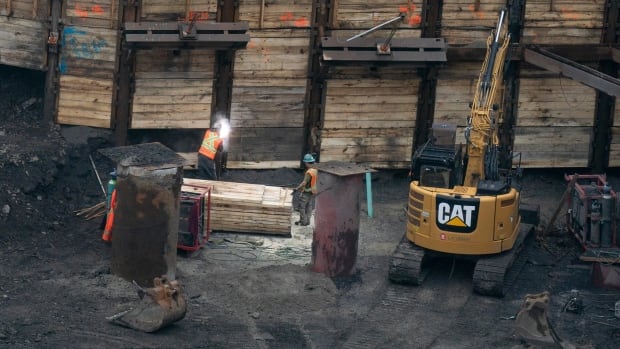
The Canadian economy appeared to stall in the second quarter as investment in housing continued to fall, led by a drop in new construction.
Statistics Canada said Friday the economy contracted at an annualized rate of 0.2 per cent in the second quarter.
The agency also revised its reading for growth in the first quarter to an annual pace of 2.6 per cent, down from 3.1 per cent.
The decline in the second quarter came as housing investment fell 2.1 per cent to post its fifth consecutive quarterly decrease. New construction dropped 8.2 per cent in the quarter, while renovation spending also fell 4.3 per cent.
The drop in spending came as Canadians face higher borrowing costs fuelled by interest rate hikes by the Bank of Canada, which is trying to bring inflation back to its target of two per cent.
The weakness in the second quarter was also attributed to lower inventory accumulations, as well as slower growth in exports and household spending.
Exports of goods and services crept up 0.1 per cent in the second quarter compared with a 2.5 per cent increase in the first quarter.
Growth in real household spending slowed to 0.1 per cent in the second quarter compared with 1.2 per cent in the first quarter.
Early estimates suggest real GDP unchanged in July
Meanwhile, business investment in non-residential structures gained 2.4 per cent in the second quarter, boosted by a 3.3 per cent gain in spending on engineering structures.
The overall pullback in the second quarter came as the economy contracted by 0.2 per cent in June.
Services-producing industries dropped 0.2 per cent in June, while goods-producing industries contracted 0.4 per cent.
Statistics Canada also said its early estimate for July suggested real GDP was essentially unchanged for the month, though it cautioned the figure would be updated.
The report comes ahead of the Bank of Canada’s latest interest rate decision, set for next Wednesday.
The central bank raised its key interest rate target by a quarter of a percentage point to five per cent in July, saying it remained concerned that progress toward its two per cent inflation target could stall.